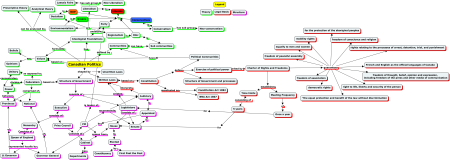I am teaching POE 206, RMCs Canadian Civics course. I am doing it completely online compared to teaching it to a live class like I did in Winter 2009, so students have some essay requirements, discussions in online forums, and some timed quizzes composed of an essay question.
I disagree with the time essay question on two points: 1. Timed testes especially essays, result in regurgitation and not critical analysis. 2. Many of the students are on operations or temporary duty whether home or abroad, and while the quiz can be done anytime during a specific week, they only have 2 hours. Some students will not have connectivity that week, thus forcing me to modify the quiz time frame in the LMS or accept email submissions based on an honor system. How many students will this happen to? Well its been my experience at least every student has to ask for a modified submission date for at least one assignment per my courses. This makes at least 25 out of 175 assignment submissions have to have negotiated alternate arrangements. So why not go to an honor system like the History department at RMC does for HIE208 and HIE275?
Now for my experiment. In my Winter POE206 course that I blogged about previous (Post 1, Post 2, Post 3, Post 4), I had the student stake a political orientation survey. I found the majority of the class was conservative leaning last winter, which surprised me because the Military was Liberal leaning in the 1990s. So I suspected in the Winter of 2009 that it had something to do with recent budget increases, purchases of new equipment, and what soldiers don’t love a war, and the conservatives are running one (Despite the fact it was the Liberals that took us int that war.) So for my fall course, I have decided to ask the next question as ask the students to recollect who the voted for in Sept 2008, January 2006 and June 2004 and why they voted for who they did (local considerations , federal leader, party platform, did not vote, spoiled vote).
Whit this info, I expect to be able to answer the influence of the orientation survey.
The next thing that interests me is if this course will have an impact on how students view politics. Many students report disliking politics or often finding themselves ignorant of the Canadian system, so I wonder if the course will change their views. Thus, I plan on asking them in the last week to retake the political orientation survey to see if their scored change and in which areas that they do. If there is a forced election this fall, then I will have even better information to work with!
Perhaps I can turn this into a combined Masters of education and political science degree? perhaps I can compare how I was able to teach the course in Winter 2009 (live students in the class) in the Winter of 2009 to Fall 2009 (online versions) to see which course is more effective by looking at grades and studnets qualitative comments to me?
A couple issues come up here: 1. Can I get into a MEd program quick enough to take advantage of the situation. 2. Will RMC get annoyed with me by having students be surveyed without their permission, 3. What ethical questions do I raise not only with my employer (RMC), but by using my own course as the basis of a MEd thesis when the students were taking the course for credit and I am probing them for information? (Do they answer the survey because they fell that to not answer the survey will affect their grade?)
I look forward to your comments.

